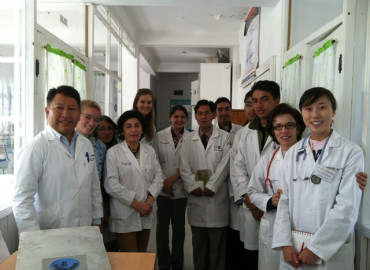Child Family Health International (CFHI): Doing More With Less- Healthcare in Remote Southern Bolivia
- Location(s): Bolivia
- Program Type(s): Study Abroad, Internship, Volunteer, Research
Child Family Health International (CFHI)
Request Info
(For American Students)
The Chagas program in Bolivia gives students a chance to have diverse knowledge on an infectious disease that is a major cause of death and disability in Latin America, but which is very rarely seen in industrialized countries. According to the C... read more
All Reviews
This program is lonely. If you went on this program leave a review!
About
Chagas is an endemic disease in Bolivia, with Tarija having one of the highest prevalence rates in the whole country. The vector that transmits chagas, called a Vinchuca, is a large, beetle-like insect which lives in roof thatching and unfinished walls common in rural and impoverished communities, and is present in 90% of the territory of Tarija. Usually considered a disease of poverty, Chagas affects approximately 70% of the population, causing miscarriages, premature births and low birth weight of children with mothers suffering from this disease. Chagas also produces visceromegalis in the digestive tube and cardiopathy, which can be deadly in many cases. This disease, usually found only in countries with scarce resources, is not very well known or studied in developed countries, but due to international migration and population shifts, it has recently been detected in areas where it was previously non-existent.
Program Type(s):
Study AbroadInternship
Volunteer
Research
Program Length(s):
- Fall
- Summer
- Spring
- Spring Break
- Custom
- Short Term
Instruction Language(s):
- Spanish
- English
Language Requirement(s):
- Spanish
Relevant Study Subject(s):
- Health/Medical Preparatory Programs
- Public Health
Website
Take me there!Statistics
Child Family Health International (CFHI) Scholarships
Child Family Health International is pleased to offer partial scholarships for select 2015 and 2016 program dates. Since 2007, we have provided CFHI Global Health Scholars with more than $100,000 in scholarship funding. CFHI is committed to working globally and addressing inequities. In line with this global lens, it is our policy to actively seek a diverse pool of candidates from a variety of backgrounds who are committed to the mission and vision of CFHI.
$500-$1000
















